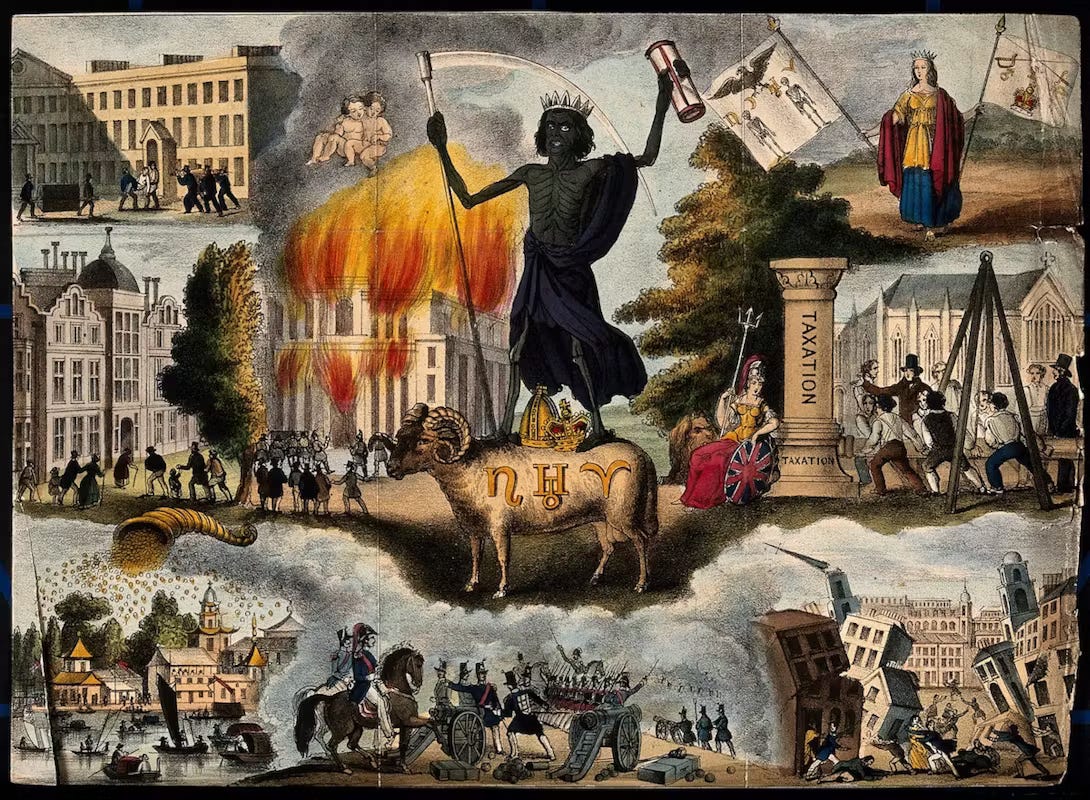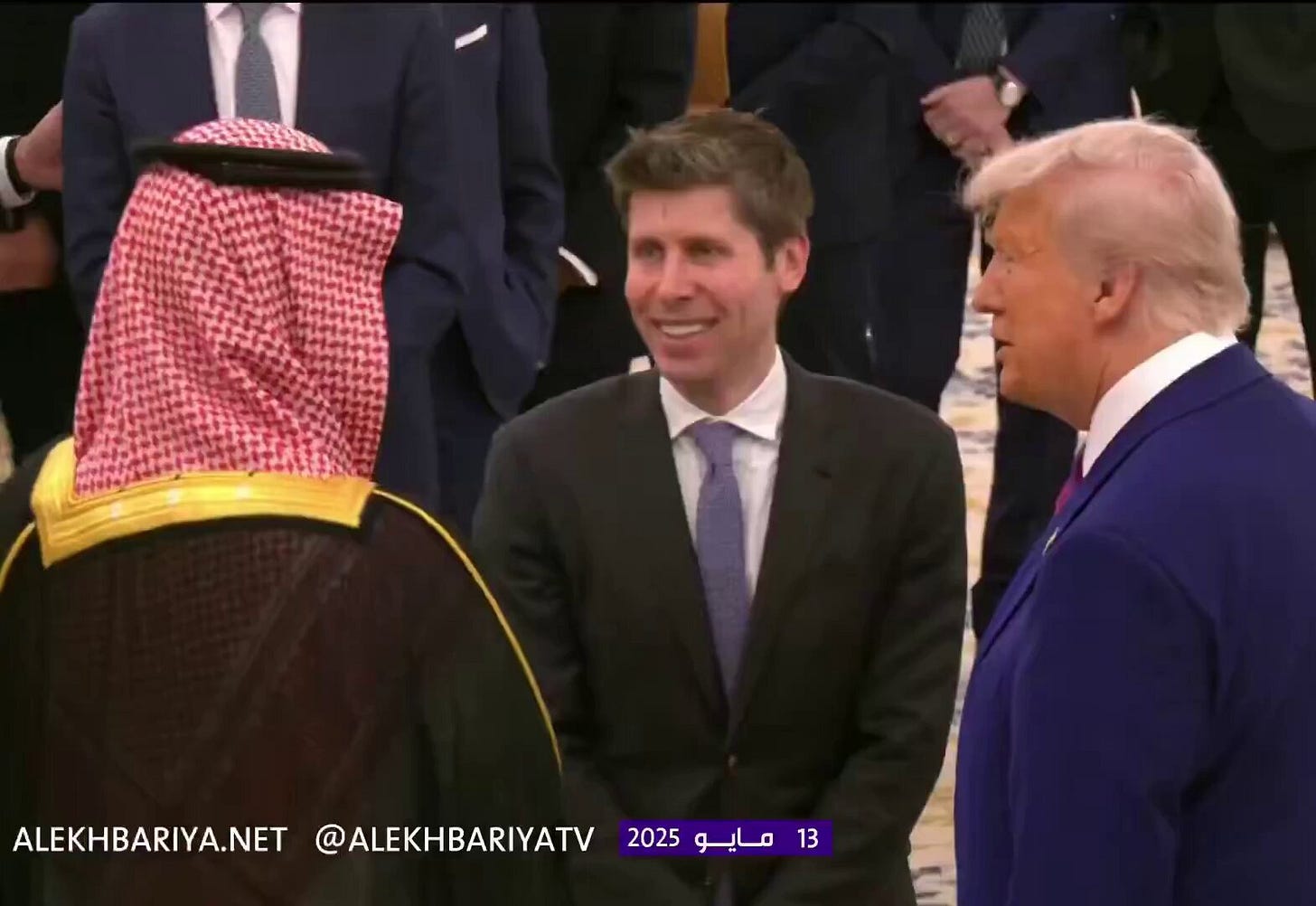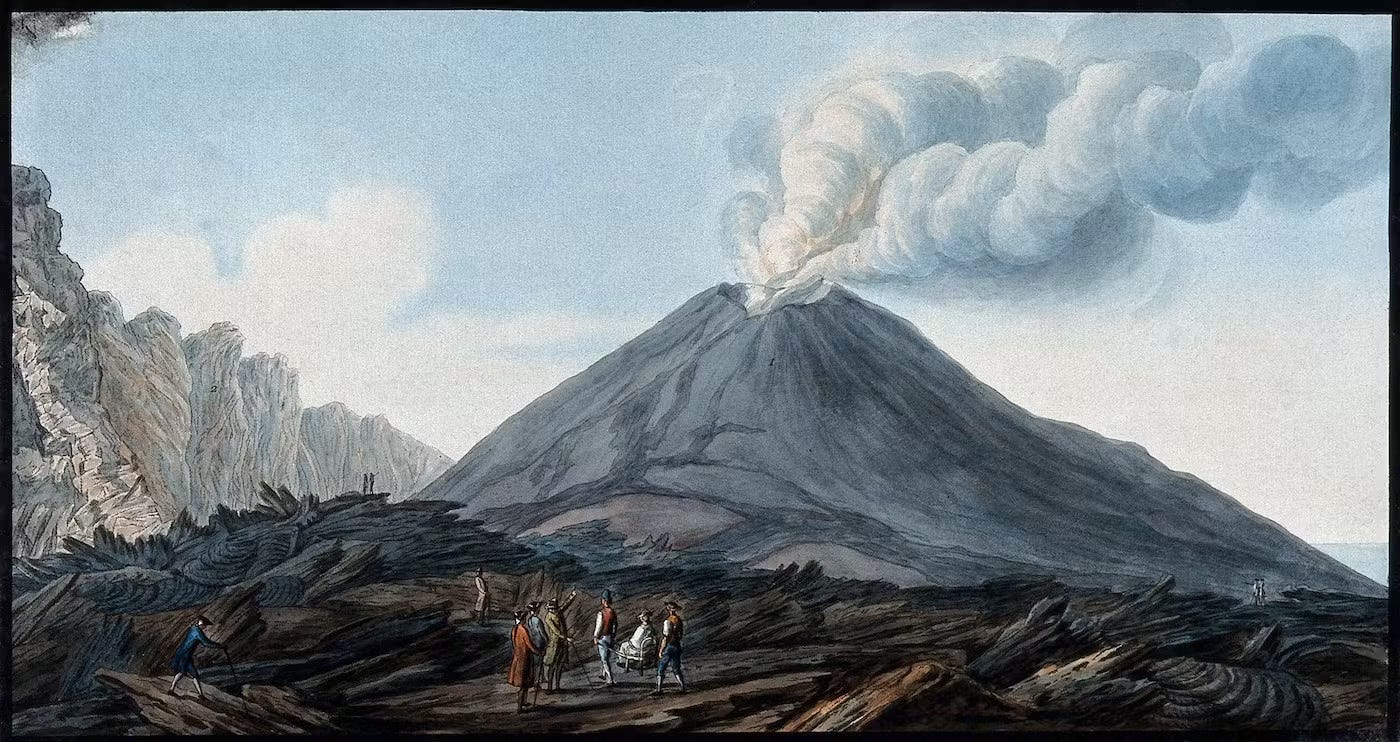I suppose I’m building a reputation for myself as an AI-themed micro-influencer for the opposition camp. But I feel some degree of discomfort in this position, since the arguments people tend to make against AI are similar to the arguments people make against internet culture more broadly. On my YouTube video essay about Slop Capitalism, a few commenters said things like “they’ve been feeding us slop for years in the form of memes.”
If there’s one thing you should know about me, it’s that I love memes. And so this led to inner conflict: how can I love Tung Tung Tung Sahur, yet despise the technology which enabled his creation?
So to resolve this conflict, I made a TikTok video this week, and the hook for it was this picture of Sam Altman meeting Donald Trump and Mohammed bin Salman in Saudi Arabia:
And the thesis was pretty straightforward: I’m not opposed to AI, I’m opposed to whatever this is.
AI doesn’t have to be an antagonist to schools, work, and civil society — they’ve just designed and trained it that way. Neither does Tung Tung Tung Sahur and his AI-generated friends need to be accomplices to scammers, cheaters, and thieves — they, and the emerging AGI (if it’s coming) are victims of the scam, just the same as you are. There could be guardrails in place, they could pay the producers of their training data, they could give the people a say in how the models are made and deployed — we could do a thousand things differently than the way they’re being done now.
They promise a technological revolution and say AI will do tons of different jobs and help us make tons of progress — but one role they never talk about automating away is “CEO.” The same goes for “venture capitalist,” because as egg-headed tech oligarch Marc Andreessen said, it involves a lot of “psychological analysis” unlike professions such as teaching and counseling, apparently. Why must AI be a servant of this kind of social order?
AI has been introduced into the market primarily as a devaluer of labor, seeking to reduce the purchasing power, voice, and influence of regular people. In the cultural realm, it has produced a tide of slop, destroying the value and capacity of our public square. Instead of taking an oppressive, poorly-constructed system as the natural or inevitable one, we could just build a different system. That idea — “build a different system” — may seem like a tall order. But it’s no taller an order than what the boosters of AI are already demanding and doing.
AI companies have demanded Stargate, a capital investment project which, over the next four years, aims to spend half of what the entire New Deal cost on building data centers and energy infrastructure. These data centers will necessitate radically more fossil fuel use, meaning more natural disasters, more crop failures, and a less livable planet for all of us. As Ed Zitron and others have argued, the costly and precariously-leveraged operations of the AI industry also pose a threat to the entire global financial system.

If you are willing to advocate for — or even just accept as a reasonable cost of progress — the drastic changes to our ways of schooling, working, and socializing which AI tools promise, then why not ask for changes to our political and financial systems as well?
Any demand citizens may make — whether for a universal basic income, some degree of public ownership or oversight of AI, guardrails to protect people from abuses of the technology — would be more reasonable and less costly than what the industry has already asked the public to endure.
*
If there is to be a technological revolution, there must also be a social revolution. Without one, we are fucked. Perhaps I am wrong, but personally, I see no other route to a life with dignity and stability. If you’re in your twenties or thirties today, what do you think? Do you see another way?
Sam Altman famously stated in an interview that as AI advances, "the whole structure of society will be up for debate and reconfiguration,” and will require “changes to the social contract.” I entirely agree. But the social contract Altman wants to see, and the one they are implementing now, is one you and I can never sign, because it would mean giving away our freedom.
If artificial intelligence changes everything about the world except for the distribution of money and power, then it will be nothing more than an accomplice to criminality. None of the liberal institutions that stood between you and the most criminal, greedy, and craven players will survive AI. Autocratic monarchies, surveillance states, and exploitative companies will use it to amplify inequality and cement their power. They will kill democracy and make you poorer.
If you are really for AI as a tool to help people be more productive and prosperous, you should also advocate for the abolition of the current social order and principled resistance to autocratic power. You can have all the microprocessor chips and energy in the world, but AI won’t help anybody unless there is a more equitable and effective governance structure in place.
In popular history, we tend to understand revolutions as a kind of volcanic eruption: the pressure of an unjust regime has built up, and people finally burst into rebellion, deciding they’ve had enough. However, if you look at history, you’ll see revolutions tend to happen as a response to ruling regimes attempting to alter the social contract in unsustainable or self-serving ways. These radical changes from above make life unbearable, so something must be done:
The monarchy spends the 18th century racking up a deficit and destroying trust so that whatever balance of power existed to sustain the ancien regime is no longer functional. The czar engages the country in a bloody and incompetently-managed war that shreds away the resources and coherence of the state. The colonial administration demands punitive tax after tax and continually violates personal liberties, to the point that people have to take action if they mean to preserve their livelihoods. Revolutions occur “when, in the course of human events, it becomes necessary” for people to do something about a bad government. “When a long train of abuses and usurpations, pursuing invariably the same Object evinces a design to reduce (the People) under absolute Despotism, it is their right, it is their duty, to throw off such Government, and to provide new Guards for their future security.”
These are Thomas Jefferson’s words. While they are very well known, people tend to sleep on one part of what he meant. Jefferson states that as people, we have a sacred obligation, a “duty to throw off such Government” because accepting the regime means betraying the creator that endowed both you and all among whom you live with “certain inalienable rights, among them life, liberty, and the pursuit of happiness.”
Revolution in the American tradition is a spiritual obligation. To live in a manner that is honorable and accountable to your creator, you must refuse despotism. To be free together is the purpose of this life — and if you don’t believe that, then you have failed the challenge Jefferson put forward. You’re far from the only one to have failed that challenge, because Jefferson himself did too.
I’m not going out in the street tomorrow to burn a Cybetruck. But I believe the situation will soon force our hands into doing something. We will have to choose, each of us, between collaboration and revolution — and collaboration will be a tempting option. It will look different for everyone. For some, particularly those of us who are privileged and living in places like the US, collaboration may look like just doing nothing and watching the world wither around you. And revolution may look like rededicating yourself to work you have already been doing, but with a more radical mindset.
I say these things out of ideological conviction, but I also say them out of a spirit of simple analysis. I don’t understand how a reasonable, moral person can think their way into any other conclusion.
If the technological revolution continues without a social revolution, you and I will simply not have a life in any meaningful sense. Which is why the heart of all I post and do right now is political, and not by choice. Memes, art, social life, and online space have been defined as battlefields because they are the places where autocrats enabled by AI and algorithms have attacked us. If we do not defend ourselves, we will be finished.






incredible! this is sort of the driving force behind me pivoting my career to learning about ai/tech governance because i see these glaring issues and cannot imagine not at least trying to make some sort of difference despite being fresh out of undergrad.
"If there is to be a technological revolution, there must also be a social revolution."
That phrase sums up the entire post. Well put! To make your phrase mine, I'd say "If there is to be a technological revolution, there will also be a social revolution."
If you're interested in ideas about how AI can be made otherwise, I'd love to hear your thoughts on a post I did a while back on that topic:
https://open.substack.com/pub/writerbytechnicality/p/do-it-for-the-machines?r=3anz55&utm_campaign=post&utm_medium=web&showWelcomeOnShare=true